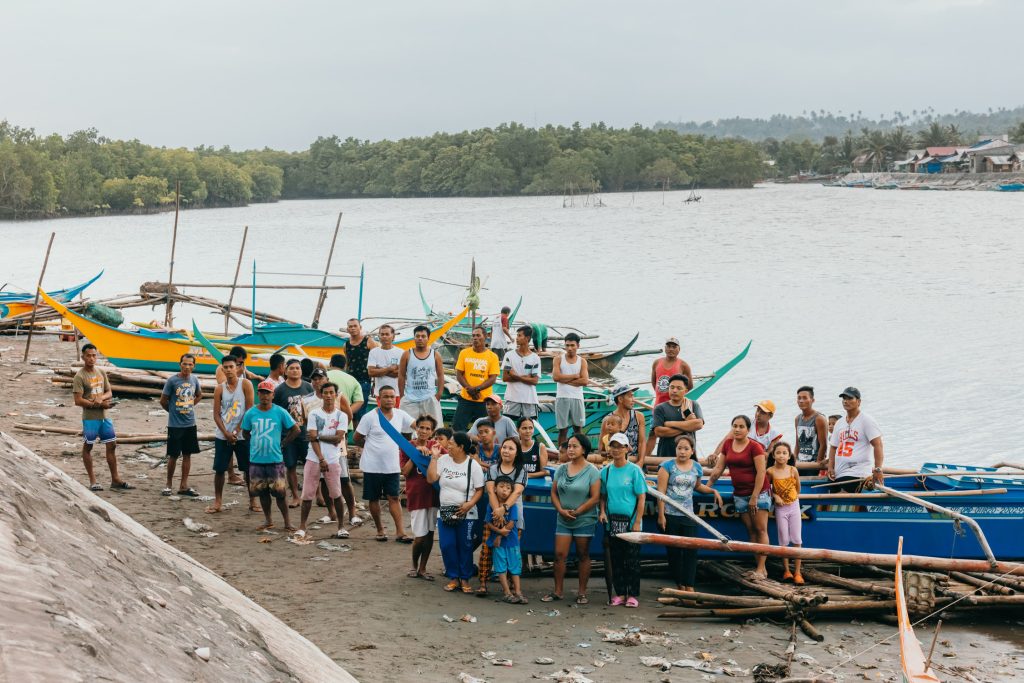A Church-backed ecological group is raising funds to help communities affected by the oil spill from a sunken fuel tanker off the coast of Mindoro island in the Philippines.
CBCP News reported that the Eco-Convergence national hub launched the campaign on this week as authorities scramble to contain the spill.
The funds raised will be used for the relief and clean-up efforts not just in Mindoro but also in other dioceses affected by the tragedy.
Eco-Convergence was launched in 2019 to further promote the teachings of Pope Francis’ encyclical on the environment, Laudato Si.
One of its partner organizations, Caritas Philippines, is also sending support for the most needy coastal communities in the Diocese of Calapan.
Father Edwin Gariguez, Calapan diocese’s social action director, said that as the government is providing the needed assistance to the affected areas, Caritas particularly aims to help the still ‘unreached’ communities.
“We are complementing their interventions, especially to reach out to the ‘unreached’ and still unattended families,” Father Gariguez said.
The Lipa Archdiocesan Social Action Center also sent relief goods to the diocese for low-income families whose livelihood were disrupted by the oil spill.
The MT Princess Empress sank on February 28 off the coast of Oriental Mindoro province’s Naujan town, after it reportedly experienced problems with its engine.
The incident has resulted in the spillage of thick industrial oil, posing health hazards to residents and disrupting the livelihood of fishermen as well as owners of resorts and other business establishments.

Communities call for transparency
On March 9, communities affected by the oil spill called for transparency from the government on the extent of the damage caused by the incident during a forum.
The groups, supported by various organizations, also demanded concrete plans to protect the affected communities and ecosystems, and to ensure that the companies responsible for the disaster are held accountable.
Ram Joseph Temeña of the Provincial Disaster Risk Reduction Management Office in Oriental Mindoro said there are currently 111 barangays, or villages, with fisherfolk whose livelihoods are affected, and 19,556 affected families from Nauhan to Bulalacao towns in Oriental Mindoro.
“We’re worried that the wind direction will shift and the oil spill will reach our shores,” said Mayor Mary Jean Te of Libertad, Antique, during the online forum.
She said it’s “tuna season” in their area “and tons of fish are being caught through sustainable fishing,” adding that they have the biggest number of mangroves and well-managed coastal resources.
Local and international experts presented data and projections gathered using available tools and mechanisms, as well as experiences from past oil spills. They said historical data and past experiences showed that such incidents cause long-term damage to the communities and the environment.
“We’ve learned that the damages from oil spills are long-lasting,” said Paul Horsman, Greenpeace Strategy Advisor, adding that 30 years after the ExxonValdez oil spill in 1989, “traces of the oil can still be found in the sediment in those areas.”
“It’s not that there are obvious black tides coming in; it’s more (of) what you don’t see when all the cameras have gone and the environment is trying to recover — that’s when the longer-term effects begin to be felt by the environment and communities who have to live with them,” said Horsman.
Environmental groups Greenpeace, Center for Energy, Ecology, and Development, and Oceana have raised the alarm about the oil spill’s devastating impacts on the Philippine’s network of marine protected areas.
“From an interconnectivity approach, where ecosystems depend on each other, the impacts that are being felt in Oriental Mindoro can greatly affect the ecosystems across Verde Island Passage,” said Ivan Andres of CEED.
“If these areas across VIP were to be damaged by the extensive impacts of the oil spills, fisheries in other areas will feel the impacts as well,” he said.
The environmental groups warned that “such a disaster is likely to happen again if the country continues to rely on fossil fuel energy, and stressed the need for transparency in overseeing offshore safety procedures and compliance by fossil fuel service providers including oil tankers.”
Liza Osorio, Oceana Legal and Policy director, said there are accountability measures in place already in the country’s laws “and in these laws, there is a ‘polluter pays’ principle.”
She urged the government to enforce more stringent measures on fossil fuel service providers.
“I believe that the government already has the necessary tools, but what is more important is [that these] accountability mechanisms should be enforced,” said Osorio.